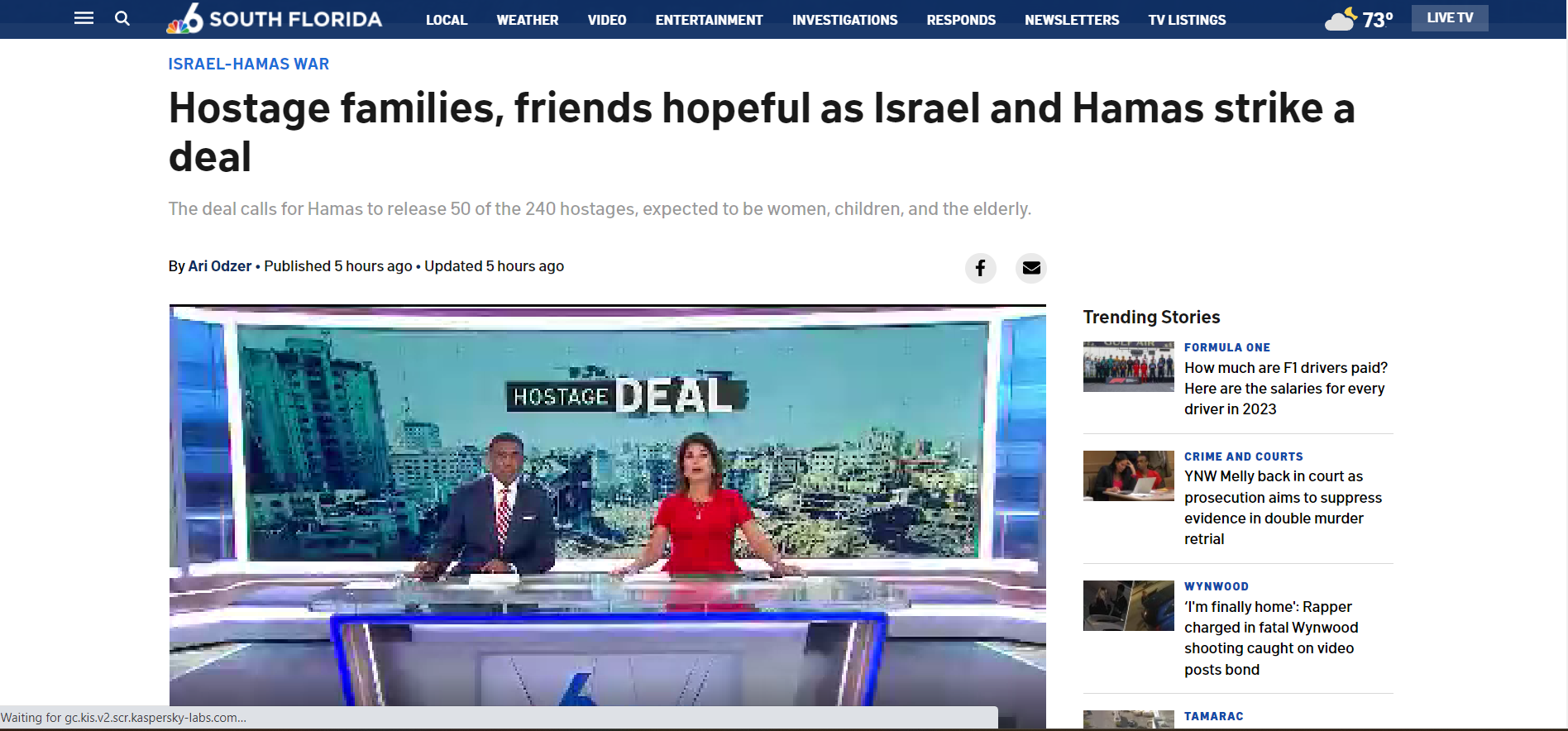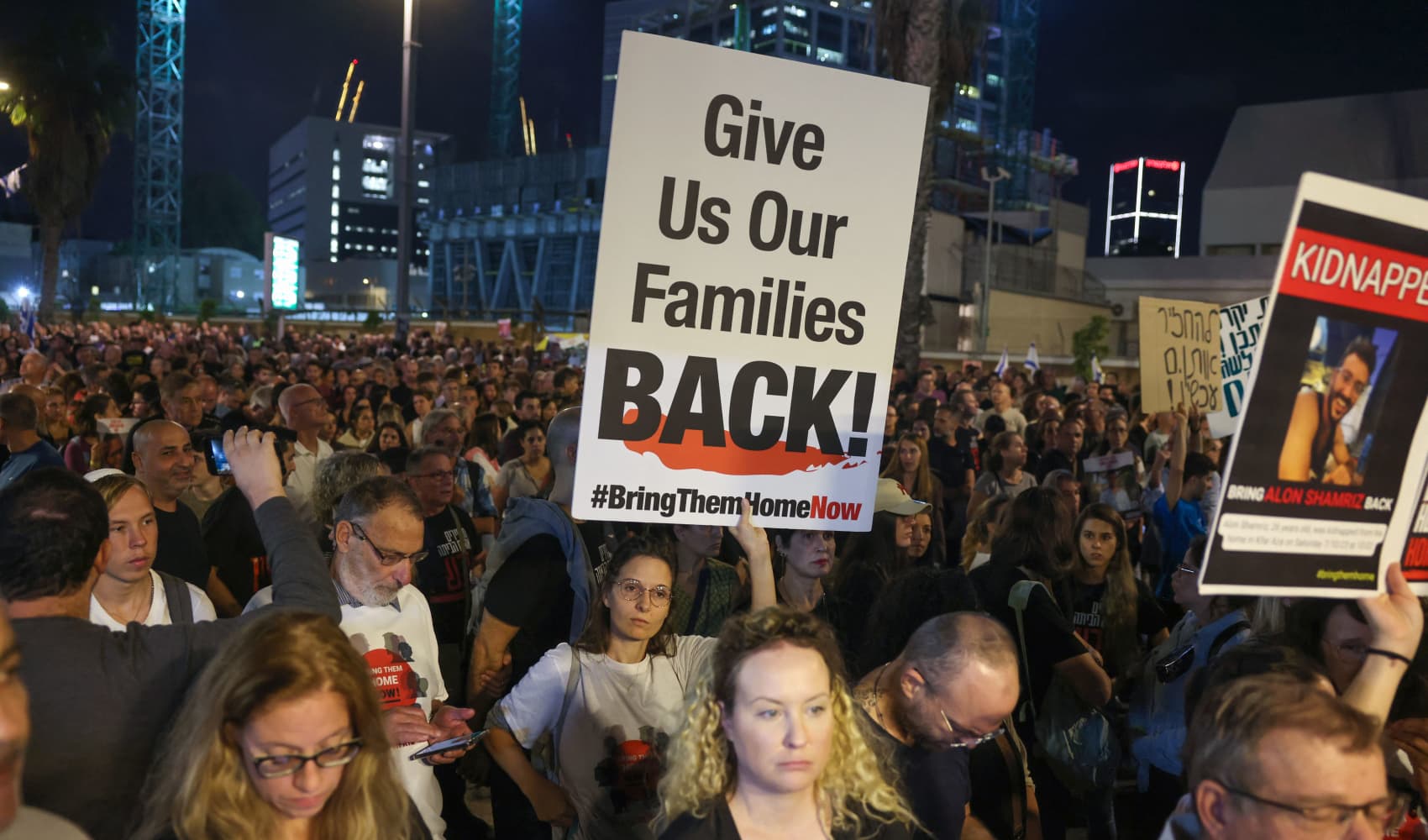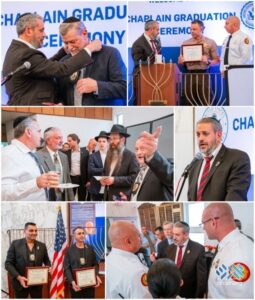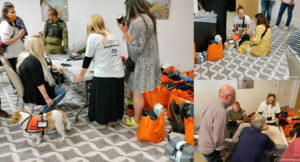Hostage families, friends hopeful as Israel and Hamas strike a deal
The deal calls for Hamas to release 50 of the 240 hostages, expected to be women, children, and the elderly.
The hostage release deal announced between Israel and Hamas is sending waves of hope through the families hoping to see their loved ones. NBC6’s Ari Odzer reports</p>
” data-ellipsis=”false” data-component-initialized=”true”>The hostage release deal announced between Israel and Hamas is sending waves of hope through the families hoping to see their loved ones. NBC6’s Ari Odzer reports
The hostage release deal announced between Israel and Hamas is sending waves of hope through the families hoping to see their loved ones.
“This is my cousin, Alon Shamriz, he was taken from his house on Oct. 7, he was stolen from his home,” said Oded Eshel, holding up a poster of his cousin.
The deal calls for Hamas to release 50 of the 240 hostages, expected to be women, children, and the elderly. All of the hostages are civilians who were just minding their own business when terrorists kidnapped them from their homes and from the dance festival.
Shamriz is a young adult, so Eshel knows he will not likely be among the hostages released this time.
“It’s really tough when your cousin, he doesn’t fit the same demographic, so it’s bittersweet,” Eshel said.
Eshel says his family is grateful that women and especially traumatized children will be coming home. The hostages are guilty of nothing; Israel is trading 150 Palestinian prisoners who have been charged with terrorist activity.
“You’re talking about people charged with violent crimes and terror-related offenses including attempted murder and grievous bodily harm,” said Israel government spokesperson Eylon Levy.
Aviv Freibach is 10 years old. We watched her walk up to a banner that had pictures of the hostages and then point at three of her friends who were abducted by Hamas. The Freibach family arrived Wednesday morning from Israel. They lived in kibbutz Nahal Oz, which was overrun by Hamas terrorists. They hid in a saferoom for 11 hours while their neighbors on each side of their home were being either murdered or kidnapped.
“I feel very fortunate, as a matter of fact, we had a miracle, I don’t know why it happened,” said Moran Freibach, Aviv’s father.
Freibach echoed what the Israeli public believes, that Hamas should release all of the hostages, but something, he says, is better than nothing.
“I’m saying that everything that can be done to release hostages, let’s do it,” Freibach said.
He was the agricultural director of his kibbutz. Freibach said he had 30 Palestinians from Gaza working in his department, his way of extending an olive branch of coexistence.
“And maybe we could stop this circle of murder and hatred, but unfortunately on Oct. 7, everything shattered,” said Freibach, who says he will not hire anyone from Gaza in the future. “There’s a lot of damage in the kibbutz, there’s a lot of damage in the heart of the people.”
He’s determined to rebuild and reopen Nahal Oz, while hostage families pray for their loved ones to come home, and maybe, some sympathy from the public.
“This isn’t a political protest,” Eshel said, holding up the poster with his cousin’s picture again. “This is a person who was stolen from his home and to see so many people comfortable to rip these down from public places, is heartbreaking.”
Eshel is the husband of NBC6 reporter Marissa Bagg.
The prisoners-for-hostages deal calls for a four-day pause in the fighting, in which Hamas has pledged to release at least 50 people it has held against their will since Oct. 7. The process is supposed to start on Thursday, and the temporary cease-fire will allow vital humanitarian aid to flow into Gaza to help the civilians there.






